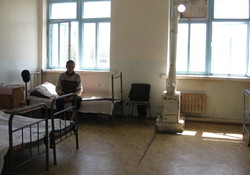Mental health and human rights

WHO
Individuals with mental health conditions – and their families – are subject to stigma, discrimination and victimization, and are vulnerable to violations of their rights. Individuals may encounter restrictions on their ability to exercise their political and civil rights, including their right to participate in public affairs and decision-making processes on issues that affect them.
An overarching aim of the European Mental Health Action Plan 2013–2020 is to respect the rights of people with mental health conditions and offer equitable opportunities to attain the highest quality of life while addressing stigma and discrimination.
To support this aim, WHO/Europe works with Member States to bring their mental health policies and legislation in line with internationally accepted human rights standards and good practices. This promotes access to good-quality mental health care and the protection of the rights of those with mental health conditions.
Recognizing that individuals living in long-term institutions are particularly vulnerable to rights violations, WHO/Europe is currently using the WHO QualityRights Tool Kit to assess quality standards and human rights protection in a number of institutions across 25 Member States.
The initial findings of the institutional assessments reveal a number of themes and issues common to many countries in the WHO European Region. These could become areas of fruitful and synergistic collaboration in the years to come as countries promote a recovery-based approach and the creation of mental health services free from coercion, violence and abuse.



